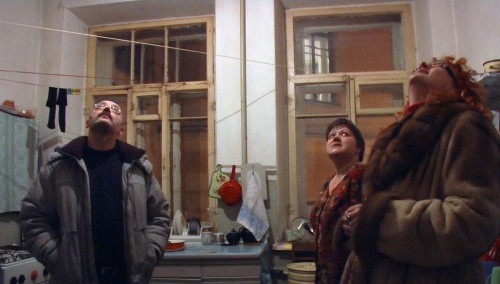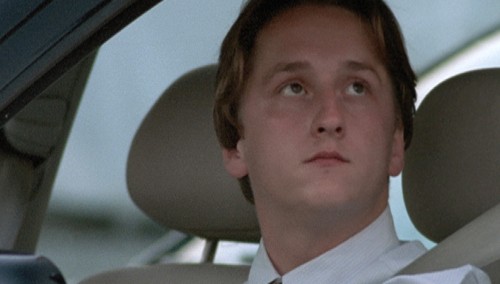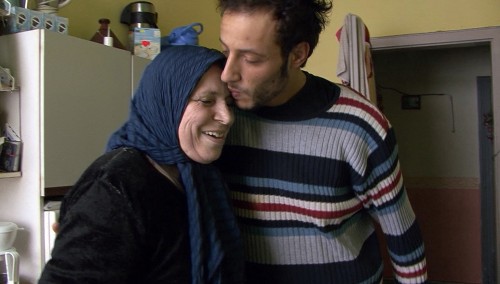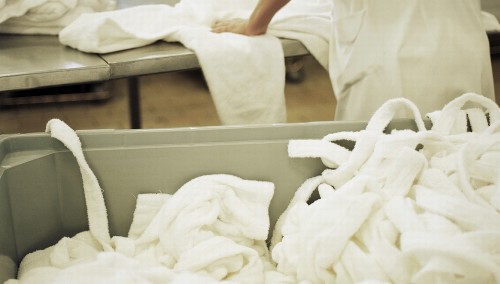Working Worlds 2009
If you expose a frog in a pot to steadily rising temperatures, it will feel comfortable most of the time and finally miss the fatal moment. Conversely, a frog that is thrown into already boiling water will try everything to escape. This example from the British anthropologist Gregory Bateson demonstrates a fundamental constant of all social systems: disasters that gradually evolve are able to escape our attention due to our capacity to adapt.
Applied to the current financial crisis, which owes its momentum primarily to inattentiveness, this line of argumentation seems quite logical, because apart from a few insiders, whose profession it is to think outside of the pot, most people were not suspicious enough in this case. Of course, this year’s edition of the series Working Worlds can only react to the extensive crisis indirectly. On the other hand, however, cinema is keenly perceptive and sometimes ahead of its time. Sollbruchstelle / Devil Hides in Doubt, a film by young director Eva Stotz from Berlin, is so highly sensitive that it is able to provide an idea of how the crisis is spreading in Germany in the form of an existential insecurity.
Work is the test here that decides who you are – or want to be someday: a man tells of his illegal dismissal, his lawsuit against the company concerned, and how he persisted in staying in a place where nobody wanted to see him any longer; on the other hand there is a younger generation indenturing themselves in demeaning jobs as advertising carriers or trying to adapt to uncertain career prospects.
Stotz uses a free, essay-like form aimed less at the individual than what is symptomatic: a disoriented society that has come to a standstill. Harun Farocki’s Leben – BRD / How to Live in the FRG , already made in 1990, is the complementary and simultaneously opposite film to this: instead of reflecting on the crisis (or depicting the ensuing stagnation), he assembles scenarios of a society almost compulsively practicing coping with a case of crisis. From the right baby clothes to more efficient mouth-to-mouth resuscitation, from crossing a pedestrian crossing to intervening in domestic violence: the core of the crisis here is that we will never be adequately prepared, no matter how many preventive measures we take.
The focus of the second part of the program lies mainly in Eastern Europe, beyond the Euro zone, where the crisis is presently solidifying. pereSTROI KA – UMBAU EINER WOHNUNG / pereSTROI KA – reCON - STRUCTION of a flat by Christiane Büchner symbolizes the consequences of the transition from planned to market economy based on an apartment in St. Petersburg, in which since the end of communism every room belongs to somebody else. The sale of such property is a very complicated endeavor, which Büchner follows with an eye for bizarre details. But behind the real-life satire, the social gap within post- Soviet society becomes increasingly evident. pere- STROI KA – reCONSTRUCTION of a flat shows that even the most private space can become an asset in a time of need, with which one must cleverly handle to preserve possibilities for advancement.
In his documentary film Die wundersame Welt der Waschkraft / The Wondrous World of Laundry Hans- Christian Schmid conveys the contrasts between East and West in another, similarly tangible example: a laundry in Poland that mainly services top-end hotels in Berlin. Schmid not only focuses on the working processes, but is interested especially in the lives of the workers and their families, whose everyday life is adapted to the 24-hour shift work. While structures are gradually crumbling in the region – around here, even the mayor needs a second job and the youths are off abroad seeking betterpaid alternatives – the laundry consolidates all available resources into a lucrative model for success: the steam comes from the nearby power plant.
Young people who must first find their way in the working life they have newly entered are also encountered in Bettina Braun’s film Was du willst, in which the director revisits Turkish youths from her first film, Was lebst du?: nobody is really euphoric about their changed life, about the pressure and the wages that are disproportionate to one another. A healthy unease, however, is at any rate the first step towards a change of the status quo.





